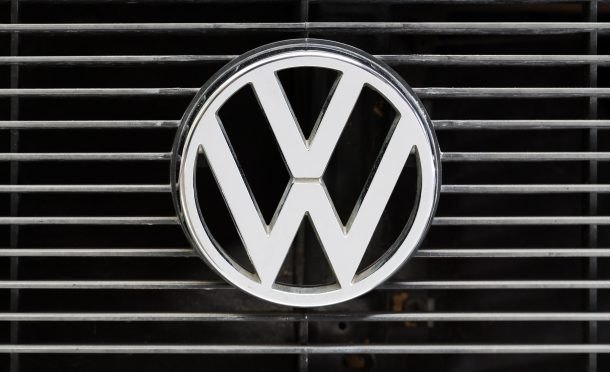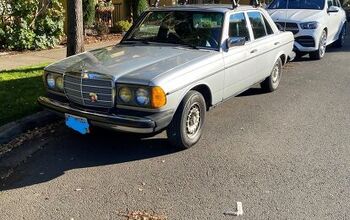Volkswagen Won't Sell Assets to Cough Up Dieselgate Capital, Blames Union Leaders

Financial analysts and industry experts have been expecting Volkswagen to begin selling assets to help cope with the cost of its diesel emissions cheating scandal. The penalty for its deception may have already reached $24.2 billion, and German lawsuits could tack on another $8 billion.
However, Europe’s largest automaker says it’s not interested in selling off properties to recoup losses associated with the scandal. It has another plan to rake in the cash.
VW says it’s more interested in focusing on the shift into electrification and mobility services. Cutting up assets for sale is not a good long-term plan for the company, according to corporate strategy head Thomas Sedran. While that may not be his personal assertion, it is a contention among the board members who forced the decision. Sedran said labor unions don’t want properties moved around, citing the group’s strong overall financial performance in spite of the scandal.
They may have a point.
Even Ducati, which is owned by Automobili Lamborghini S.p.A. and subsequently Volkswagen AG, has grown quite a bit since it was acquired by the company in 2012. Ducati has expanded from 1,197 employees to 1,558 and has remained profitable through last year. With the notable exception of Škoda, that’s been the case with of most of VW’s subsidiaries.
While the Italian motorcycle company seems like a good property to shift, mainly because so much of its current value is wrapped up in the Ducati name and there is so little product overlap, it still cleared $863 million in revenue last year. That represents a 4.1-percent increase over 2015 and $54 million in profits. It isn’t losing Volkswagen any money.
In fact, the thing hurting the company most is Volkswagen itself — especially its diesel division. Distancing itself from highly regulated internal combustion engines may be enough for it to turn a corner and keep from upsetting the unions.
“It’s much more important to discuss which new business fields the company will enter. Divestments are less relevant,” he said in an interview with Reuters. “Big decisions like how to expand or optimize the business portfolio of a global company need time and have to be developed by consensus. For Volkswagen, the topic of the business portfolio is very important but not time critical.”
Volkswagen is still considering the potential value of selling Ducati and transmission manufacturer Renk, though. Sources reference five bidders in the running to acquire Ducati, including Italy’s Benetton family, which owns a number of Italian roadside restaurants and a significant portion of the Autostrade they occupy. Offers on Ducati range from $1.5 to $1.8 billion.
“Top management has a clear idea of what belongs to core business and what doesn’t,” Sedran explained. “It is now a question of how the supervisory board will assess this and what one wants to do.”
The corporate strategy head didn’t say it, but it sounds like executives want non-essential subsidiaries gone while labor leaders, which are also on the board, prefer for them to stay. But Sedran stated the obvious by adding the money to pay for the emissions scandal has to be found somewhere.
“So it’s perfectly plausible that we consider whether the time may have come to find a more suitable owner for certain business areas,” he said.

A staunch consumer advocate tracking industry trends and regulation. Before joining TTAC, Matt spent a decade working for marketing and research firms based in NYC. Clients included several of the world’s largest automakers, global tire brands, and aftermarket part suppliers. Dissatisfied with the corporate world and resentful of having to wear suits everyday, he pivoted to writing about cars. Since then, that man has become an ardent supporter of the right-to-repair movement, been interviewed on the auto industry by national radio broadcasts, driven more rental cars than anyone ever should, participated in amateur rallying events, and received the requisite minimum training as sanctioned by the SCCA. Handy with a wrench, Matt grew up surrounded by Detroit auto workers and managed to get a pizza delivery job before he was legally eligible. He later found himself driving box trucks through Manhattan, guaranteeing future sympathy for actual truckers. He continues to conduct research pertaining to the automotive sector as an independent contractor and has since moved back to his native Michigan, closer to where the cars are born. A contrarian, Matt claims to prefer understeer — stating that front and all-wheel drive vehicles cater best to his driving style.
More by Matt Posky
Latest Car Reviews
Read moreLatest Product Reviews
Read moreRecent Comments
- Lou_BC Hard pass
- TheEndlessEnigma These cars were bought and hooned. This is a bomb waiting to go off in an owner's driveway.
- Kwik_Shift_Pro4X Thankfully I don't have to deal with GDI issues in my Frontier. These cleaners should do well for me if I win.
- Theflyersfan Serious answer time...Honda used to stand for excellence in auto engineering. Their first main claim to fame was the CVCC (we don't need a catalytic converter!) engine and it sent from there. Their suspensions, their VTEC engines, slick manual transmissions, even a stowing minivan seat, all theirs. But I think they've been coasting a bit lately. Yes, the Civic Type-R has a powerful small engine, but the Honda of old would have found a way to get more revs out of it and make it feel like an i-VTEC engine of old instead of any old turbo engine that can be found in a multitude of performance small cars. Their 1.5L turbo-4...well...have they ever figured out the oil dilution problems? Very un-Honda-like. Paint issues that still linger. Cheaper feeling interior trim. All things that fly in the face of what Honda once was. The only thing that they seem to have kept have been the sales staff that treat you with utter contempt for daring to walk into their inner sanctum and wanting a deal on something that isn't a bare-bones CR-V. So Honda, beat the rest of your Japanese and Korean rivals, and plug-in hybridize everything. If you want a relatively (in an engineering way) easy way to get ahead of the curve, raise the CAFE score, and have a major point to advertise, and be able to sell to those who can't plug in easily, sell them on something that will get, for example, 35% better mileage, plug in when you get a chance, and drives like a Honda. Bring back some of the engineering skills that Honda once stood for. And then start introducing a portfolio of EVs once people are more comfortable with the idea of plugging in. People seeing that they can easily use an EV for their daily errands with the gas engine never starting will eventually sell them on a future EV because that range anxiety will be lessened. The all EV leap is still a bridge too far, especially as recent sales numbers have shown. Baby steps. That's how you win people over.
- Theflyersfan If this saves (or delays) an expensive carbon brushing off of the valves down the road, I'll take a case. I understand that can be a very expensive bit of scheduled maintenance.

































Comments
Join the conversation
Cry me a river of tears.
Seat and Skoda are expendable, although I don't know if anyone would actually want to buy them. I'm sure Lambo and Bugatti are likely money losers and only in the portfolio for Halo purposes, but perhaps someone from China would pull the trigger. Bentley is probably the most valuable brand they have that wouldn't put a big dent in their annual sales and profits it is was sold - perhaps Tata would like another British brand?